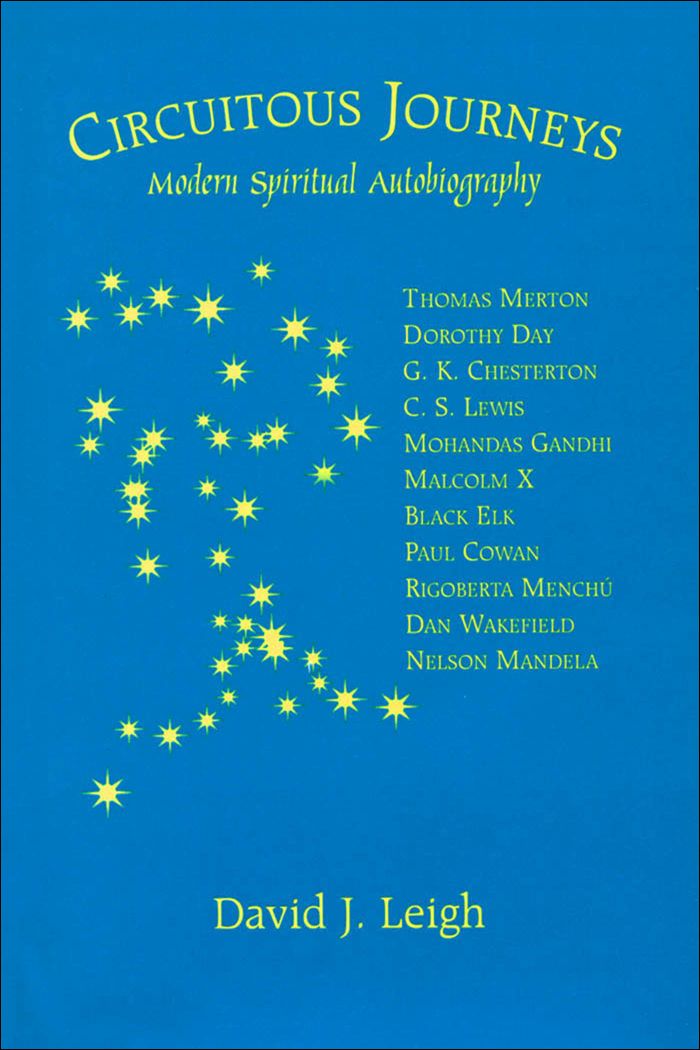Circuitous Journeys
Modern Spiritual Autobiography

This book can be opened with

Circuitous Journeys: Modern Spiritual Autobiography provides a close reading and analysis of ten major life stories by twentieth-century leaders and thinkers from a variety of religious and cultural traditions: Mohandas Gandhi, Black Elk, Thomas Merton, Dorothy Day, C. S. Lewis, Malcolm X, Paul Cowan, Rigoberta Menchu, Dan Wakefield, and Nelson Mandela.
The book uses approaches from literary criticism, developmental psychology (influenced by Erik Erikson, James Fowler, and Carol Gilligan), and spirituality (influenced by John S. Donne, Emile Griffin, Walter Conn, and Bernard Lonergan).
Each text is read in the light of the autobiographical tradition begun by St. Augustine’s Confessions, but with a focus on distinctively modern and post-modern transformations of the self-writing genre. The twentieth-century context of religious alienation, social autonomy, identity crises and politics, and the search for social justice is examined in each text.
...This volume will provide a rich source for those engaged in study of spiritual autobiography.
Leigh has given readers a model in which spiritual autobiography might fit.——Christianity and Literature
This series of essays comprises a close reading by Leigh (English, Seattle Univ.) of the autobiographies of Thomas Merton, Dorothy Day, C.S. Lewis, G.K. Chesterton, M. Ghandhi, Malcolm X, Black Elk, Paul Cowan, Rigoberta Menchu, Dan Wakefield, and Nelson Mandela, arguing that their religious significance is best discerned by uncovering their literary pattern and the implicit psychological dynamic of the individual autobiographers. A difficulty with the latter is a tendency to reduce the individual autobiographer's search for meaning to the resolution of psychological tensions, from the perspective of a reified Freudianism, e.g., "One can see in much of Merton's life story a search for the 'sense of purpose' he failed to achieve because of the timing of the death of his mother." Or, "Day's life can be seen as a circular journey to resolve the tensions between the father and mother within her...." Other criticisms: the individual chapters lack a common or similar format to aid readers in following the analysis; the excellent synthetic introduction and cursory conclusion would be better if switched; analysis often seems to be made to fit a Procrustean bed of theory, rather than theory flowing from analysis; and the intended audience is unclear. Suitable for graduate students, faculty, and researchers.——Choice
Leigh analyzes 10 major 20th-century figures in the light of the autobiographical tradition begun by Augustine's Confessions.——Theology Digest

